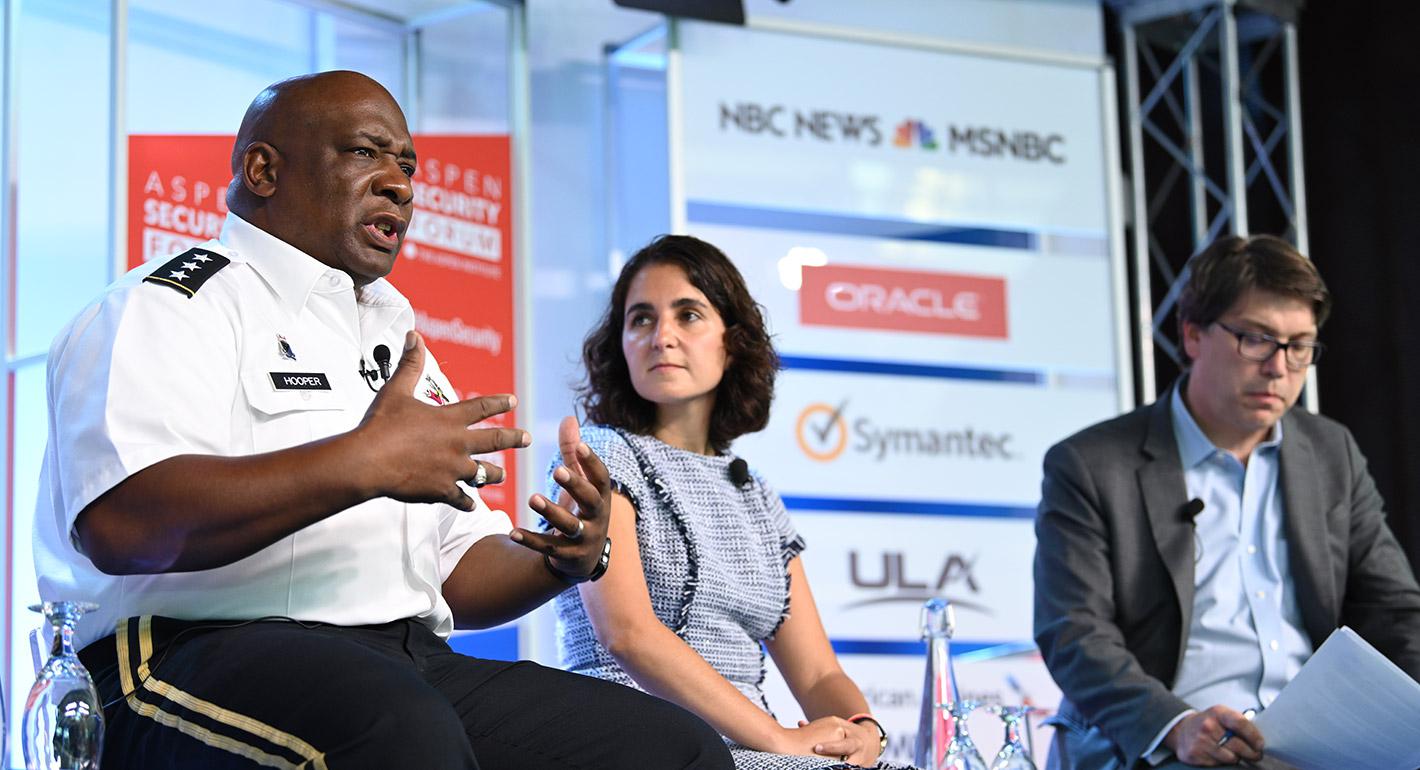The U.S.-China relationship is the playlist of my life.
In August 1975—barely three years after former president Richard Nixon’s historic visit to China—I was one of the rare few West Point cadets selected to study the Chinese language and our country’s complex 250-year-long relationship with China. The careening relationship has been, at different points, highlighted by indifference, fear, mutual admiration, armed conflict, expedient Cold War–era collaboration, and finally uneasy coexistence.
In August 1989, just after the violence in Tiananmen Square, I was temporarily assigned to the U.S. embassy in Beijing to study a country, a language, and a people at a violent political and economic crossroads. Little did I know that I had been given a front-row, center-court seat to watch the twentieth century rise of China.
I saw the rise through the lens of a solider and strategist carefully studying a potential, perhaps inevitable, adversary. My American classmates—exchange student entrepreneurs—saw the rise of China as the business opportunity of a lifetime for the United States. Even then, we grappled with how the U.S.-China relationship would evolve and what language to use to describe it: strategic partners, engagement partners, competitors, peer competitors, near peer competitors, and now great-power competitors.
Intellectually, I knew my friends were right. The economic fortunes of the United States and China were inextricably linked through this century and beyond. That said, for forty years, I was a hard-nosed, pragmatic policy practitioner—completing two attaché assignments in Beijing; serving in positions as the senior director for China and Taiwan in the Office of Secretary of Defense and as the U.S. Indo-Pacific Command deputy director of strategy; and teaching Chinese foreign policy to our rising military leaders at the Naval Postgraduate School. The full weight of my intellectual thumb was on the security side of the scales. Subsequent senior-level assignments in various countries throughout Africa and the Middle East and, most recently, as the director of U.S global defense sales, only reinforced my beliefs.
Now, as my forty-year-long military career ends and I transition to scholarly interests, I still have unanswered questions. How do we manage the inherent tension between the U.S.-China military rivalry in places like the South China Sea, given our indispensable economic relationship? Is it indispensable? How will it impact our future global security and economic prospects? Are we destined to be rivals, great-power competitors, enemies, “frienemies,” or something else?
I honestly don’t know. I plan to spend my time at Carnegie working on the answers to these questions.
